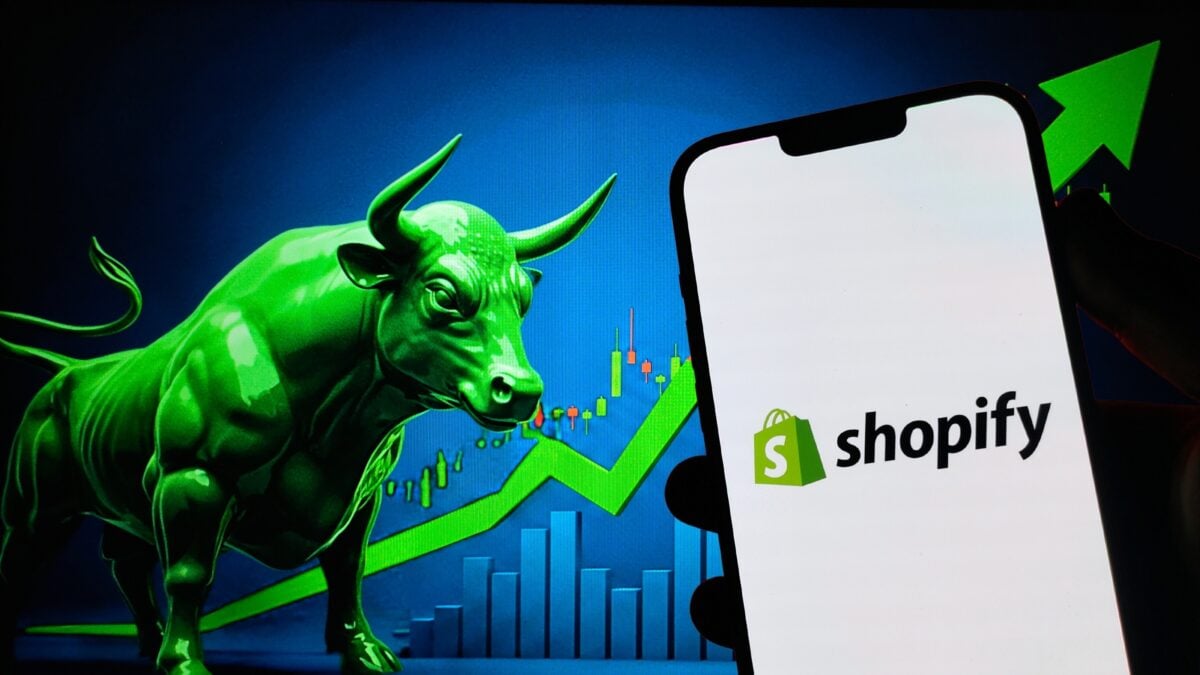TLDRs;
Contents
- Shopify stock jumped 22% after beating Wall Street estimates and issuing strong forward guidance.
- Q2 earnings showed 31% revenue growth, $906M profit, and surging U.S. demand.
- AI investments, including store builders and shopping agents, are boosting platform performance.
- Shopify CEO mandates AI-first approach before hiring, signaling major workforce shift.
Shopify’s second-quarter results sent shockwaves through Wall Street, with the stock soaring 22% in the past 5 days in response to a stellar earnings report and promising AI-driven roadmap.
The e-commerce giant reported adjusted earnings of $0.35 per share on revenue of $2.7 billion, both beating analyst forecasts.
The company’s Q2 revenue grew 31% year-over-year, up from 20% growth during the same period last year. Net income surged to $906 million, or $0.69 per share, compared to just $171 million a year ago. Gross merchandise volume (GMV) reached $87.8 billion, surpassing Wall Street’s estimate of $81.5 billion.
Shopify attributed the strong performance to resilient U.S. demand and aggressive AI integration across its platform. The company now expects Q3 revenue to grow in the mid-to-high 20% range, exceeding analysts’ 21.7% projection.

AI Tools Drive New Growth
Behind the financial strength is Shopify’s bet on AI, a strategy that’s starting to show real results. In May, the company launched an AI-powered store builder, followed by the introduction of AI shopping agents earlier this week. These features aim to enhance user experience through hyper-personalization, dynamic pricing, and smarter inventory management.
Executives say AI is “making Shopify more compelling to a wider range of businesses than ever before.” Analysts agree, pointing to Shopify’s expanding ecosystem and the rising importance of AI in e-commerce, a market projected to grow from $8.65 billion in 2025 to over $22.6 billion by 2032.
Gross merchandise sales rose 29% year-on-year, further indicating robust merchant growth and healthy transaction volumes across Shopify’s platform.
CEO Tobi Lütke’s AI-First Workforce Policy
In April, CEO Tobi Lütke introduced a company-wide policy requiring teams to justify why AI cannot fulfill a task before requesting new hires or budget.
“Before asking for more headcount, teams must demonstrate why they can’t get it done using AI,” Lütke had stated in a widely shared internal memo.
The move reflects a broader trend in tech, where executives are rethinking traditional workforce models in favor of AI-driven efficiency. Lütke’s AI-first mandate puts Shopify in line with tech giants like Meta, which has made similar shifts toward AI-specific staffing.
While the policy sparked debate around job security, experts suggest AI is more likely to transform roles than eliminate them. A recent WEF report predicts that while 9 million jobs may be displaced by 2030 due to AI, 19 million new roles will be created in its wake.
The Formula Fueling Shopify’s Record Run
Shopify’s performance this quarter reaffirms its role as a market leader in AI-powered e-commerce. With consumer demand steady and technological investment accelerating, the platform is poised to capitalize on the next wave of retail transformation.
Investors appear bullish not just on Shopify’s numbers, but on its long-term strategy. With a future focused on intelligent automation and global scalability, Shopify is quickly redefining what it means to run a modern, tech-forward commerce platform.


